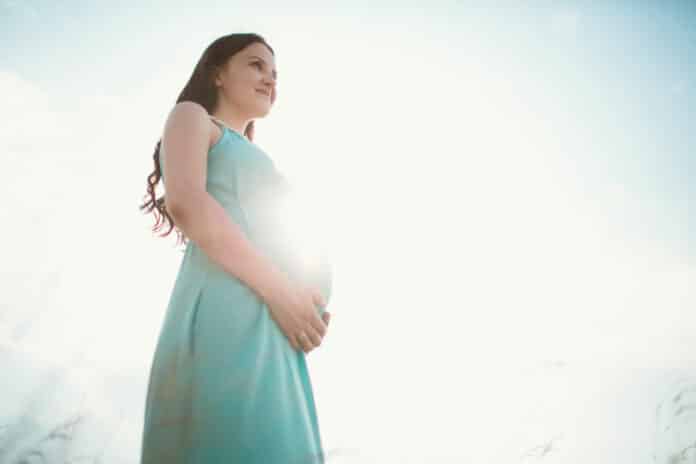A cell-based study has helped disentangle the complex relationship between genetic mutations, pregnancy, and breast cancer risk.
Researchers at Imperial College London studied healthy breast cells taken from 29 women with varying ages of childbirth experience and women who had never given birth. They aimed to investigate genetic mutations and the process of cell division.
This is the first time they’ve ever done this kind of research, and it helps to understand what happens when breast cells become cancerous. It’s important because it might explain why women who have their first baby when they’re older have a higher chance of getting breast cancer later in life than women who have babies when they’re younger.
Lead author of the study, Dr Biancastella Cereser, from Imperial’s Department of Surgery and Cancer, said, “In recent decades, women have begun having children later because of societal changes and personal preferences. Previous research has found that this is associated with a heightened breast cancer risk.”
She added, “Our research delves into the genetic mysteries governing this risk. Like other organs, we found that the human breast accumulates mutations with age – but also that pregnancy has an additional effect, meaning that older first-time mothers might have a higher chance of developing harmful changes in their breast cells than other women.”
Pregnancy has a complex impact on a woman’s risk of breast cancer. Research shows that women who become mothers for the first time at a young age (under 24) have a lower long-term risk (20-35% less) of breast cancer compared to those who don’t have kids. But if a woman has her first child after age 24, her risk goes up by 5% for every five years.
In their recent study, Dr. Cereser and her team closely examined the changes in healthy breast tissue from different groups of women: those under 25 who were first-time mothers, those between 35 and 55 who were first-time mothers, and women aged 25 to 53 with no children.
They looked at the entire genetic makeup of 29 frozen healthy breast tissues from women who hadn’t used hormonal contraception and didn’t have specific genetic mutations known to increase breast cancer risk (BRCA1 or BRCA2).
They discovered that as women age, their healthy breast tissue accumulates about 15 mutations per year in the epithelium tissue, where breast cancer usually begins. Most of these mutations don’t cause any harm and aren’t in genes linked to cancer, which is what we’d expect in average, healthy tissue.
The researchers also looked at groups of cells with the same genetic makeup, called clonal patches. These happen when a mutated cell passes its mutation to its daughter cells, making more mutated cells. Importantly, breast tissue from first-time mothers aged 35-55 had more and more significant clonal patches.
Based on this, Dr. Cereser thinks their breast cells naturally get more mutations as women age. With more time, there’s a higher chance that one of those mutations happens in genes linked to cancer (called ‘driver mutations’). This might not cause cancer on its own.
However, pregnancy could worsen because it causes a quick growth of breast cells in preparation for breastfeeding. If cells with driver mutations grow and spread faster, they could outcompete healthy cells nearby, which might lead to cancer.
Journal Reference:
- Cereser, B., Yiu, A., Tabassum, N. et al. The mutational landscape of the adult healthy parous and nulliparous human breast. Nature Communications. DOI: 10.1038/s41467-023-40608-z.
